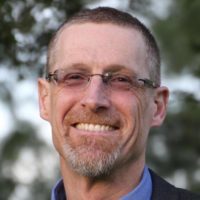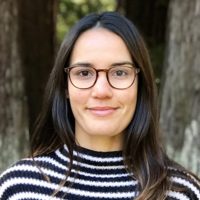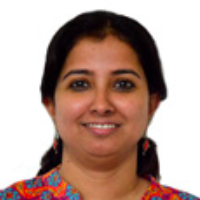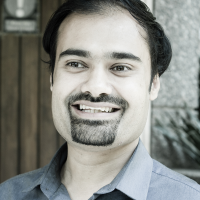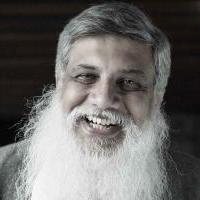Bangalore, August 19, 2017
New Delhi, August 22, 2017
Meeting Purpose and Goals
India is a vast, socio-culturally diverse and dynamic country with states that differ greatly economically, socially and politically from one another. To avoid generalizations, and in an effort to lift up the experiences of those most disadvantaged, the India case study focused on exploring inclusion in predominantly rural states. We did so by drawing on the Inclusive Economies framework and contextualizing it using data from Indiastat across five key states: Bihar, Rajasthan, Andhra Pradesh, Assam and Kerala. For the workshops in India, we generated a comparative analysis of all five states to gain insight and guide our thinking around three questions: What has been achieved? What challenges still remain? And, what local processes help explain these outcomes? Workshops were held in two parts of the country, one in Bangalore in partnership with the International Institute of Information Technology, Bangalore, and one in New Delhi with assistance from the Centre for Policy Research.
Agenda
9:30 – 10:00 am Registration
10:00 – 10:15 am Welcome and Introductions: Agenda and workshop objectives
10.15 – 11.30 am Introduction of the framework
This presentation will cover the major aims of the research project, with a focus on motivating the five broad dimensions that characterize the current framework on “Inclusive Economies.”
11:30 am – 1:00 pm Data analysis presentation
How can this framework be improved upon? How do we include aspects of identity? Are any key sub- categories or indicators missing or not measured properly? Are there any suggestions on better measures to fit within the confines of the categories and sub-categories?
1:00 – 2:00 pm Lunch
2:00 – 3:30 pm The Big Picture – Value of the Framework
Is the five theme approach a useful way to think about economic inclusion? Does the framework capture all dimensions of inclusion in the Indian context? Is any key dimension missing from the framework? Do the participants find this sort of exercise useful, on either a theoretical level and/or in their own work? What would make it more relevant?
3:30 – 3:45 pm Break
3:45 – 5:15 pm Policy Discussion
Is this material likely to be useful to policy practitioners? Can the framework be useful when it comes to policy conversations? Can it be used to track changes in the inclusiveness of the Indian economy over time? How effective is it for meaningful state comparisons?
5:15 – 5:30 pm Concluding Remarks
6:30pm Dinner
8:30 – 9:00 am Registration and Coffee
9:00 – 10:00 am Overview of the Project and Goals of this Workshop: Evolution of the conceptual framework of Inclusive Economies
10:00 – 10:15 am Experts’ Responses and Comments
When you think about inclusion in India, what are important factors, and are they included in our sub-categories? What is missing?
What are the lessons that people in other parts of the globe could and should learn from India’s experience with inclusiveness?
10:15 – 10:45 am Questions, Comments, Discussion on Overall Framework & Goals
10:45 – 11:00 am Coffee Break
11:00 – 12:00 pm Breakout Sessions 1: Discussions in group
Group 1: Manjula Menon, Ajit Sinha, Ravindra Srinivas, Gayatri Lal, Chris Benner
How do you think the category and sub-categories of sustainability shed new lights on issues of inclusiveness in a rural economy?
Group 2: K.N. Harilal, Annapurna Neti, Tara Nair, Sharadini Rath, Sudhama Rao, Gabriela Giusta
How do you think the category and sub-categories of stability shed new light on issues of inclusiveness in a rural economy?
Group 3: Meena Nair, Puja Guha, Arvind Risbud, Vinoj Abraham, Bhavani Seetharaman, Gordon McGranahan
How do you think the category and sub-categories of participation shed new light on issues of inclusiveness in a rural economy?
Group 4:, Chiranjib Sen, S.S. Meenakshisundaram, Srinivas Alamaru, Kala Sridhar, Bidisha Chaudhuri
Who do you think are the main actors (state, civil society, market) in shaping inclusiveness in a rural economy, and what has been their relative importance?
12:00 – 12:45 pm Report back: 10-15 minutes for each group to present the most important insights from their discussion. Short Q&A
12:45 – 1:45 pm Lunch
1:45 – 2:45 pm Discussion around key questions:
How can this framework help us better understand causes and patterns of inequalities between different states?
How can measuring inclusiveness help promote a more inclusive economy? Who would use these indicators and how could they be used?
When you think about inclusion in India, what are important factors, and are they included in our sub-categories? What is missing?
What are the lessons that people in other parts of the globe could and should learn from India’s experience with inclusiveness?
2:45 – 3:15 pm Report back: 15 minutes for each group to present the most important insights from their discussion. Short Q&A
3:15 – 3:30 pm Coffee Break
3:30 – 4:15 pm Open Discussion on the Framework:
What value added emerges from this broad framework? Who could benefit from such a framework? How does it relate to other efforts to understand inclusive economies across the globe? How can we best disseminate our learnings from this work to a broader audience?
4:15 – 4:30 pm Way forward and Vote of thanks
6:00 pm Dinner at Hotel Radha Regent
Organizers
Participants
New Delhi Convening
- Pulapre Balakrishnan, Ashoka University
- Rakesh Basant, Indian Institute of Management
- Pinaki Chakraborty, National Institute of Public Finance & Policy
- S Chandrashekar, Indira Gandhi Institute for Development Research
- Ashvin Dayal, The Rockefeller Foundation
- Ashwini Deshpande, Delhi School of Economics
- Neeraj Hatekar, Mumbai School of Economics and Public Policy
- Surinder S. Jodhka, Centre for the Study of Social Systems, School of Social Sciences, Jawaharlal Nehru University
- Mekhala Krishnamurthy, Department of Sociology at Shiv Nadar University (SNU)
- Sanjay Kumar, Centre for the Study of Developing Societies (CSDS)
- Rinku Murgai, World Bank
- Sudha Pai, Indian Council for Social Sciences Research (ICSSR)
- Vimala Ramachandran, National University of Educational Planning and Administration
- Atul Sood, Centre for the Study of Regional Development, School of Social Sciences, Jawaharlal Nehru University
- E. Sridharan, University of Pennsylvania Institute for the Advanced Study of India (UPIASI)
- Pronab Sen, IGC’s India Central Programme
- Gilles Verniers, Ashoka University
- Farzana Afridi, The Economics and Planning Unit, Indian Statistical Institute
- Sonalde Desai, University of Maryland
- Himanshu, Centre for Study of Regional Development, School of Social Sciences, Jawaharlal Nehru University
- Abhiroop Mukhopadhyay, The Economics and Planning Unit, Indian Statistical Institute
- Harsh Sethi, Consulting Editor, Seminar Magazine
- Sukhadeo Thorat, entre for the Study of Regional Development, Jawaharlal Nehru University
Bangalore Convening
- Ajit Sinha, Azim Premji University
- Annapurna Neti, Azim Premji University
- Arvind G. Risbud, MYRAD
- Balaji Parthasarathy, IIITBalaji
- Chiranjib Sen, Azim Premji University
- Gayatri Lal, MYRADA
- Gordon McGranahan, Institute of Development Studies (IDS), University of Sussex
- Janaki Srinivasan, IIIT
- Justin Visagie, Human Science Research Council
- K.N. Harilal, Centre for Development Studies
- Kala Seetharam Sridhar, Institute of Social and Economic Change
- Manjula Menon, M S Swaminathan Research Foundation (MSSRF)
- Puja Guha, Azim Premji University
- R. Srinivas, Centre for Sustainable Development,
- S.S. Meenakshisundaram, MYRADA
- Sharadini Rath, President at Thanal Trust/Independent Researche
- Srinivas Kumar Alamuru, Centre for Budget and Policy Studies (CBPS)
- Sudhama Rao, MYRADA
- Tara Nair, Gujarat Institute of Development Research
- V. Sridhar, IIIT
- Vinoj Abraham, Centre for Development Studies
Resources
- “Inclusive Economies: States of India” Presentation by Chris Benner, with Gabriela Giusta and Bidisha Chaudhuri
Location
The New Delhi convening was held at the Centre for Policy Research.
The Bangalore convening was held at the International Institute of Information Technology.

